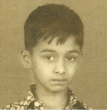Sowmya’s husband works as a sales executive in a private company; the pay is poor and hours long. But you cannot crib as he was not even a graduate. The poor fellow has to generate a sale of at least Rs.4 lacs selling those wretched banner stands to earn a measly Rs.5,000.
They had two children and both old enough to understand that destiny had given them a raw deal; they were in a government school as they see the corrupt in glitzy cars. Sowmya, worked as a cook in a couple of houses to scrap every month’s expenses. Though poor, they did not deny the children the pleasure of festivals no matter how squeezed their purse strings were.
Their celebration of Deepavali shows what “believe” can do.
Sowmya’s husband was particular that the children not be denied the festive spirits. He was yet to get his bonus and feels that clothes or sweets or crackers don’t necessarily make a Deepavali special; it is the spirit. It is an occasion for all the family members to congregate and celebrate together.
Sivakumar's eldest brother insists that all his seven siblings meet at his house on Deepavali day and have lunch there. Later, all the children burst crackers together. "For us, it is very important to take our elders' blessings. So we go there with whatever we have prepared. Deepavali is the only day the entire family eats together. It is a wonderful experience," Sowmya says.
In the evening, the younger sister visits them with her family bringing with her sweets, crackers and clothes for the children and importantly smiles and affection.
Sivakumar gets roughly Rs 1500-2000 as bonus, which they spend on the festival. The wife believes nobody should forget their roots, follow all the traditions associated with Deepavali. "We just do it according to our means," she says.
Tradition dictates that Deepavalli is celebrated by making sweets and savories at home, so she makes Mysorepak and ribbon pakoda. They do buy new clothes, but opt for the cheaper variety available at T Nagar. They also buy crackers worth Rs 150-Rs 200; that's what they can afford but they like making that symbolic gesture. Even the children insist the family does spend not much on crackers.
"It is our tradition that we burst crackers early in the morning before and after we have our oil bath. So we buy crackers for that purpose only," says Sowmya.
Bharadwaj, the son admits he was never fond of bursting crackers, so he never felt bad when his friends in school and college spent a lot of money on crackers. "I got enough crackers to burst at my uncle's place as I am the only boy in our extended family. But I don't like spending too much on this. What I enjoy most about the festival is celebrating it with my uncles, aunts and cousins from my mother's and father's side."
Priyanka, the daughter confesses that she doesn't ask for anything, not even new dress, for Deepavali. "Even if I ask for crackers, I ask for very little; only what my parents can afford. Besides, we are at our uncle's place till evening and we burst a lot of crackers there. What I like about Deepavali is that all of us celebrate the festival together. It makes me very happy."
Sowmya explains the spirit of Deepavali in a beautiful way. "On this day, we forget all our worries and enjoy with our family. More than the money we spend, more than anything else, it is the happiness that we get out of the togetherness -- and the blessings that we get from our elders -- that is special to us. This is what we want to inculcate in our children."
She works for a house where the woman is a middle level executive in Wipro and the man a software engineer for Dell. These couple gross more than Rs.1.5 lacs a month and yet their appreciation of Deepavalli was much less.
How do I know?
The man went on an overseas trip a week before the festival and the woman went on a retail therapy.
Friday, May 8, 2009
Subscribe to:
Post Comments (Atom)



No comments:
Post a Comment